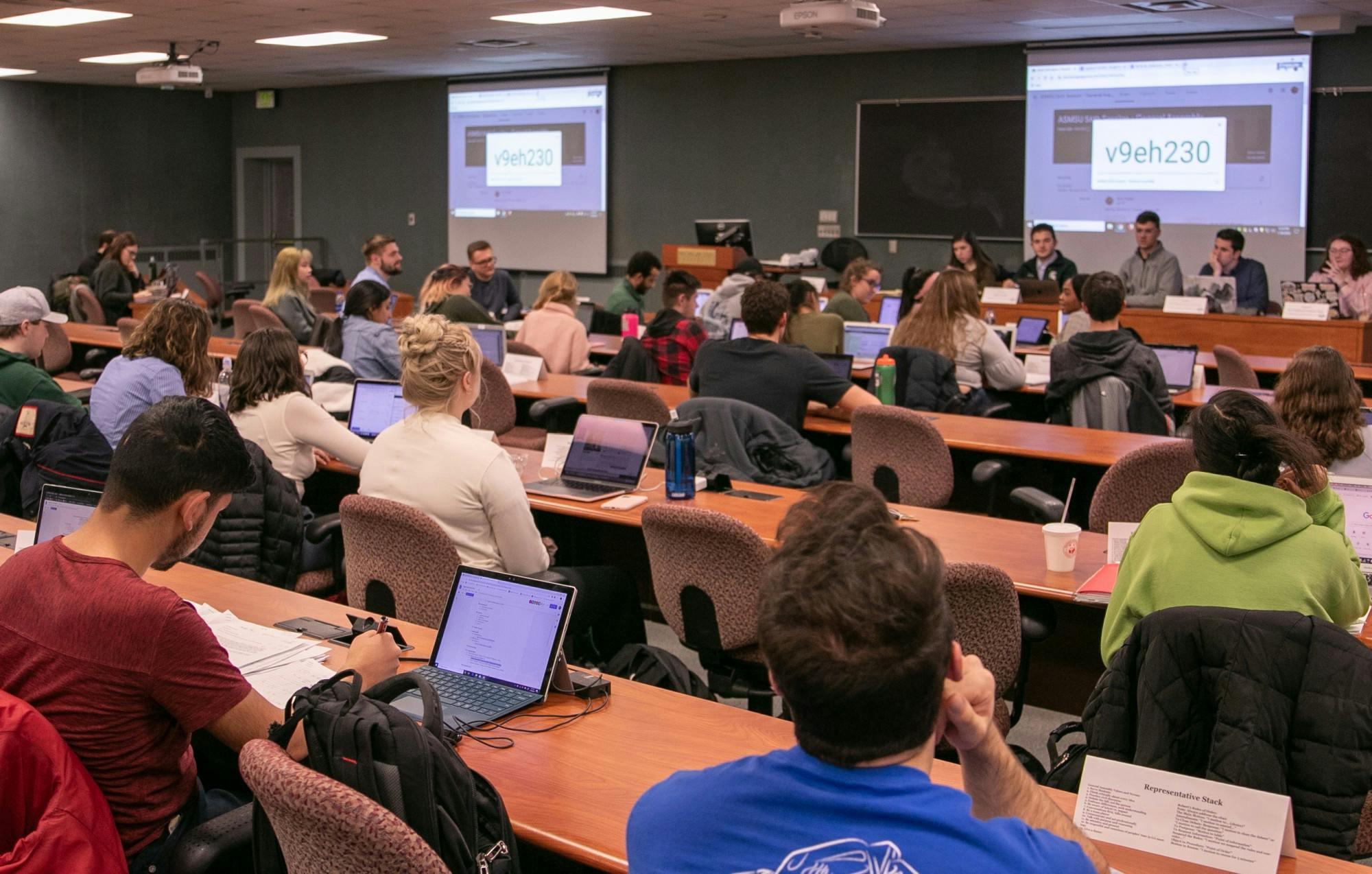The Associated Students of Michigan State University, or ASMSU, passed four new bills last week in a special summer meeting held Thursday via Zoom.
The first bill, introduced by Rep. Travis Boling to establish an ASMSU Sexual Assault and Relationship Violence (SARV) Ad Hoc Committee which supports the survivors at MSU, effective immediately.
“This idea sort of stems from a few weeks ago when students shared their stories through Tweets,” ASMSU President Abii-Tah Bih said. “When those tweets went viral, at ASMSU we sort of came together and said, 'Okay, a lot of students are still experiencing this on campus, clearly, so how can we be helpful?'”
Bih said the internal ASMSU ad hoc committee for sexual assault would be made up of several members of ASMSU, as well as other student organizations that directly work to prevent sexual assault on campus as well as other administrators.
The bill was seconded by Rep. Jordan Kovach and passed with voice majority unanimously.
“It is such an important bill,” Kovach said. “Especially to have people who are most affected by these policies be the ones who are reviewing (it) and being able to make the change, I think that's super important.”
The Committee will be co-chaired by two people, according to the bill. The first chair will be held by ASMSU’s Director of Health, Safety, and Wellness who will also be facilitating an election to chose the second chair. The election will be held at the first meeting of each academic year. Any MSU student is eligible for this chair position.
The second bill calls to advocate for the city of East Lansing plea bargain policies to align with prosecuting entities in Ingham County.
"We have a memorandum that ASMSU lawyers compiled,” Bih said. “That memorandum shows that at East Lansing, if you are charged with whatever infractions and you wanted a plea bargain, you would have to pay three times more than any other institution in Ingham County.”
The ASMSU Student Legal Services office compiled a memorandum per request of the ASMSU President February. They have since updated the memorandum as mentioned in the bill.
- “I. The City of East Lansing imposes significantly higher fines and costs than any other unit of government in Ingham County.
- II. The City of East Lansing is the only unit of government in Ingham County which imposes an additional penalty of ‘conditional dismissal’ as part of a plea bargain.
- III. The City of East Lansing is the only unit of government in Ingham County which does not follow a District Court authorized to fine and cost schedule or a schedule that has been approved by ordinance.
- IV. The City of East Lansing is the only unit of government in Ingham County that requires a defendant to waive significant legal rights and make an admission of guilt in order to receive a plea bargain to a reduced charge of a civil infraction.”
ASMSU student legal services attorney Dave Meyers gave a presentation on the disparities among all the district courts within Ingham county. The bill was introduced by Rep. Maria Kakos and seconded by Rep. Aubrey Hanes. It passed unanimously.
“It's not so much a plan as much as letting (the city council) know the disparity,” Meyers said. “The difference in those conditions that they're adding on to these civil infractions that no one else is doing, in really emphasizing the effect it's having on students specifically both in the idea of limiting them in the future and in limiting their rights."
The last two bills passed were based on previously passed bills in earlier ASMSU general assembly meetings, to be taken up to the Association of Big Ten Students so that other Big Ten schools could pass them as well.
The third bill was to sponsor an Association of Big Ten Students Resolution, or ABTS, calling them to advocate for the continuation of the Optional Practical Training with F-1 Status (OPT) for international students.
Introduced by MSU International Student Association Rep. Nikunj Agarwal, and seconded by Asian Pacific American Students Organization, or APASO, this resolution was passed unanimously by ASMSU as well.
The final bill of the evening was to sponsor an ABTS resolution calling for ABTS to support any Big Ten Student Government advocating for donor accountability policies.
Bih said the bill was created in the first session because of the case with the vice president of research and innovation, Stephen Hsu who was removed from the position following multiple petitions circulating calling for his removal, criticizing research with racist, sexist and eugenicist views, highlighted by the MSU Graduate Employees Union.
"If you're going to have donors on campus like Larry Gaynor or vice president like Stephen Hsu, then there should be some sort of screening so that (they) can adhere to the values of the university,” Bih said. “And if they cannot stand for diversity, equity and inclusion that they shouldn't be our donors. They shouldn't be vice president.”
The second ABTS resolution was introduced by APASO and seconded by ISA Rep. Agarwal. It was unanimously passed.
Support student media!
Please consider donating to The State News and help fund the future of journalism.
Discussion
Share and discuss “ASMSU calls to establish Sexual Assault Ad Hoc Committee, passed four bills ” on social media.








